* build: configure pretter as formatter for most files * chore: reformat code (#1931) * chore: re-format all files * chore: force run quality anaylsis test Co-authored-by: Juan Picado @jotadeveloper <juanpicado19@gmail.com> Co-authored-by: Juan Picado @jotadeveloper <juanpicado19@gmail.com>
6.9 KiB
| id | title |
|---|---|
| docker | Docker |
To pull the latest pre-built docker image:
docker pull verdaccio/verdaccio
Tagged Versions
Since version v2.x you can pull docker images by tag, as follows:
For a major version:
docker pull verdaccio/verdaccio:4
For a minor version:
docker pull verdaccio/verdaccio:4.0
For a specific (patch) version:
docker pull verdaccio/verdaccio:4.0.0
If you are interested on a list of tags, please visit the Docker Hub website.
Running Verdaccio using Docker
To run the docker container:
docker run -it --rm --name verdaccio -p 4873:4873 verdaccio/verdaccio
The last argument defines which image to use. The above line will pull the latest prebuilt image from dockerhub, if you haven't done that already.
If you have build an image locally use verdaccio as the last argument.
You can use -v to bind mount conf, storage and plugins to the hosts filesystem:
V_PATH=/path/for/verdaccio; docker run -it --rm --name verdaccio \
-p 4873:4873 \
-v $V_PATH/conf:/verdaccio/conf \
-v $V_PATH/storage:/verdaccio/storage \
-v $V_PATH/plugins:/verdaccio/plugins \
verdaccio/verdaccio
Note: Verdaccio runs as a non-root user (uid=10001) inside the container, if you use bind mount to override default, you need to make sure the mount directory is assigned to the right user. In above example, you need to run
sudo chown -R 10001:65533 /opt/verdacciootherwise you will get permission errors at runtime. Use docker volume is recommended over using bind mount.
Verdaccio 4 provides a new set of environment variables to modify either permissions, port or http protocol. Here the complete list:
| Property | default | Description |
|---|---|---|
| VERDACCIO_APPDIR | /opt/verdaccio |
the docker working directory |
| VERDACCIO_USER_NAME | verdaccio |
the system user |
| VERDACCIO_USER_UID | 10001 |
the user id being used to apply folder permissions |
| VERDACCIO_PORT | 4873 |
the verdaccio port |
| VERDACCIO_PROTOCOL | http |
the default http protocol |
Plugins
Plugins can be installed in a separate directory and mounted using Docker or Kubernetes, however make sure you build plugins with native dependencies using the same base image as the Verdaccio Dockerfile.
FROM verdaccio/verdaccio
USER root
ENV NODE_ENV=production
RUN npm i && npm install verdaccio-s3-storage
USER verdaccio
Docker and custom port configuration
Any host:port configured in conf/config.yaml under listen is currently ignored when using docker.
If you want to reach Verdaccio docker instance under different port, lets say 5000
in your docker run command add the environment variable VERDACCIO_PORT=5000 and then expose the port -p 5000:5000.
V_PATH=/path/for/verdaccio; docker run -it --rm --name verdaccio \
-e "VERDACCIO_PORT=8080" -p 8080:8080 \
verdaccio/verdaccio
Of course the numbers you give to -p paremeter need to match.
Using HTTPS with Docker
You can configure the protocol verdaccio is going to listen on, similarly to the port configuration.
You have to overwrite the default value("http") of the PROTOCOL environment variable to "https", after you specified the certificates in the config.yaml.
docker run -it --rm --name verdaccio \
--env "VERDACCIO_PROTOCOL=https" -p 4873:4873
verdaccio/verdaccio
Using docker-compose
- Get the latest version of docker-compose.
- Build and run the container:
$ docker-compose up --build
You can set the port to use (for both container and host) by prefixing the above command with VERDACCIO_PORT=5000.
version: '3.1'
services:
verdaccio:
image: verdaccio/verdaccio
container_name: 'verdaccio'
networks:
- node-network
environment:
- VERDACCIO_PORT=4873
ports:
- '4873:4873'
volumes:
- './storage:/verdaccio/storage'
- './config:/verdaccio/conf'
- './plugins:/verdaccio/plugins'
networks:
node-network:
driver: bridge
Docker will generate a named volume in which to store persistent application data. You can use docker inspect or docker volume inspect to reveal the physical location of the volume and edit the configuration, such as:
$ docker volume inspect verdaccio_verdaccio
[
{
"Name": "verdaccio_verdaccio",
"Driver": "local",
"Mountpoint": "/var/lib/docker/volumes/verdaccio_verdaccio/_data",
"Labels": null,
"Scope": "local"
}
]
Build your own Docker image
docker build -t verdaccio .
There is also an npm script for building the docker image, so you can also do:
yarn run build:docker
Note: The first build takes some minutes to build because it needs to run npm install,
and it will take that long again whenever you change any file that is not listed in .dockerignore.
Please note that for any of the above docker commands you need to have docker installed on your machine and the docker executable should be available on your $PATH.
Docker Examples
There is a separate repository that hosts multiple configurations to compose Docker images with verdaccio, for instance, as reverse proxy:
https://github.com/verdaccio/docker-examples
Docker Custom Builds
If you have made an image based on Verdaccio, feel free to add it to this list.
- docker-verdaccio-gitlab
- docker-verdaccio
- docker-verdaccio-s3 Private NPM container that can backup to s3
- docker-verdaccio-ldap
- verdaccio-ldap
- verdaccio-compose-local-bridge
- docker-verdaccio
- verdaccio-docker
- verdaccio-server
- coldrye-debian-verdaccio docker image providing verdaccio from coldrye-debian-nodejs.



